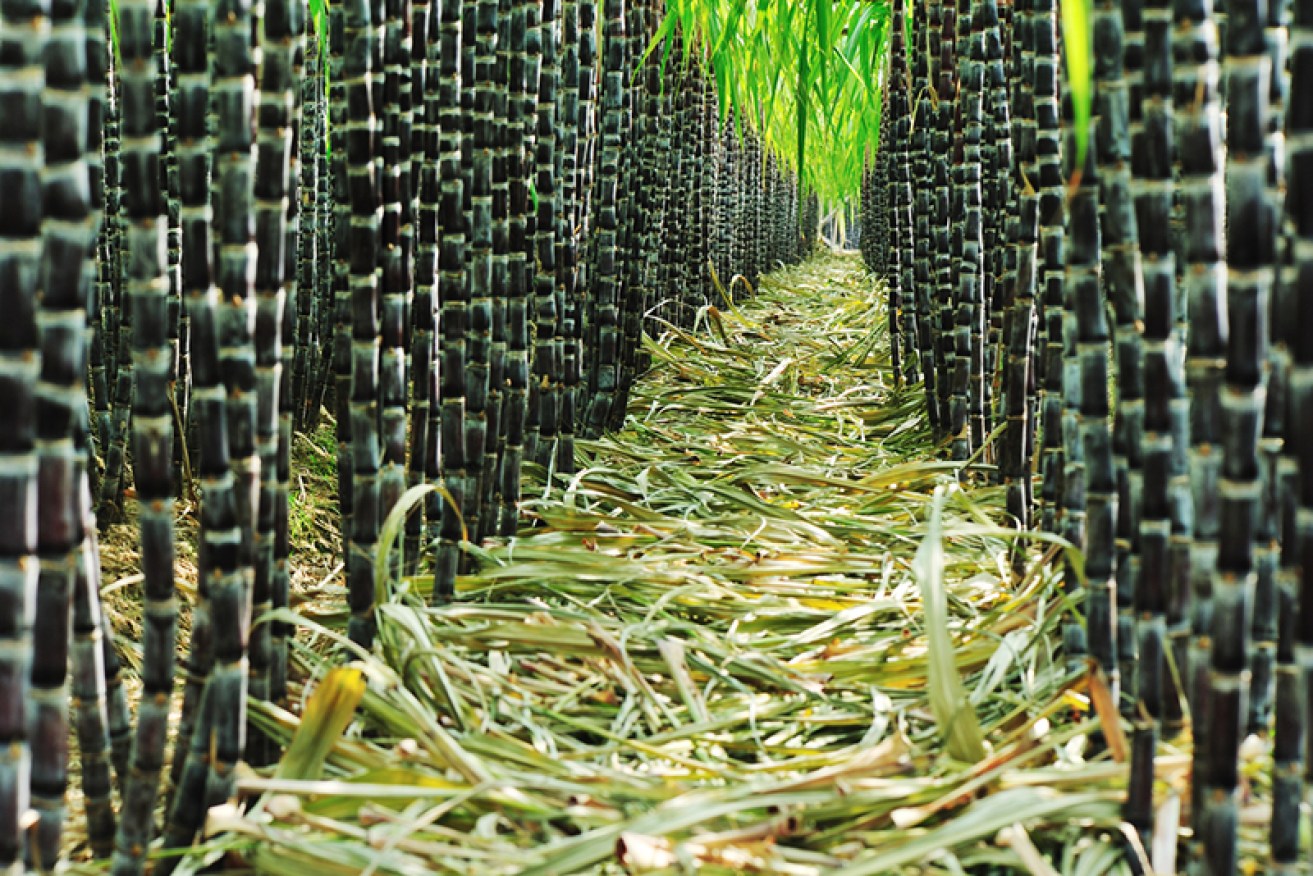Barnaby’s beef: what the Depp debacle was about


Sugar
You probably didn’t notice, but when Barnaby Joyce threatened to kill Johnny Depp’s dogs he was really sending a message to the United States government.
That message was: Australia won’t be bullied on biosecurity issues.
The Agriculture Minister felt the need to send this message because the US is reportedly putting pressure on Australia to lift its strict stance on US beef imports.
• Who let the dogs in? Johnny Depp faces jail time
• Secret trade deal turns consumers into criminals
• Unions attack secret trade deal
• ‘Johnny Depp’s dogs should bugger off’: Barnaby Joyce

Barnaby Joyce’s beef is really with the US government. Photo: AAP
In an interview with Fairfax last week, Mr Joyce said:
“The US is going to go into the negotiations for the TPP. They’re going to say, ‘we expect you to put aside your biosecurity issues’. No, no, no. I wanted to make a strong statement. They can read between the lines.”
The ‘TPP’ to which Mr Joyce refers is the ‘Trans-Pacific Partnership Agreement’ – a controversial trade deal currently being negotiated between 12 Pacific nations, including Australia and the US.
The Australian reported last week that, as part of the TPP, the US wants to cut a deal with Australia, allowing more Australian raw sugar into the US in exchange for dropping a ban on US beef.
Trade and Investment Minister Andrew Robb declined either to confirm or deny to The New Daily that the US has offered this deal. However, a glance at the dynamics of the two industries makes it look like an obvious trade-off, at least from the US perspective.
Mad cows a ruse for protectionist policy?
The United States is by far the world’s biggest beef producer, producing 11.23 million tonnes of beef a year. Australia, meanwhile, is the seventh-biggest producer, with 2.24 million tonnes.
However, Australia exports more beef than the US – 1.56 million tonnes to the US’s 1.17 million. Only Brazil and India export more beef than Australia and the US.

Beef is Australia’s 10th biggest export. Photo: Shutterstock
So why does the US export such a small amount of beef compared to the amount it produces? Partly, it is because there is so much demand within the US. But it is also because US cattle are at risk of carrying bovine spongiform encephalopathy (BSE) – or mad cow disease.
The first case of BSE in the US appeared in 2003, and resulted in a large number of countries banning US beef imports outright. Since then most have lifted the ban, although three of the world’s biggest beef producers – Brazil, Argentina and Australia – are among a handful that have not.
There are two explanations for why big beef producers would be more inclined than other countries to keep the bans in place. One is these countries are able to cater to domestic demand themselves, and can therefore afford to be more careful. The other is that they are using biosecurity as a ruse for good old-fashioned protectionism.
Food Standards Australia New Zealand is currently reviewing whether or not to lift its ban on US beef.
Where sugar comes in
If the US beef industry is keen to access the Australian market, then the Australian sugar industry is even keener to access the US market.
Australia is the third-biggest sugar exporter in the world, after Brazil (by far the biggest) and Thailand. As one of the world’s biggest sugar consumers, the US is a key market for sugar producers.
But thanks to a very powerful sugar lobby, US laws are extremely restrictive on sugar imports.

Australia is the third biggest sugar exporter in the world, but is largely shut out of the US market. Photo: Shutterstock
Australian Sugar Industry Alliance head-economics Warren Males told The New Daily that, thanks to these restrictions, Australia is only allowed to export around 80,000 tonnes of raw sugar to the US a year, out of total exports of 3.29 million tonnes. Mexico, meanwhile, exports 1.34 million tonnes to the US.
“Sugar was the key commodity that was excluded from the Australia-US free trade agreement when it was negotiated back in the early 2000s,” Mr Males said. “And there’s no economically sound reason for sugar to be excluded from this deal.”
Mr Males said there is unmet demand in the US for Australian raw sugar, as the US sugar refining industry is currently operating almost one million tonnes under capacity. That’s because the majority of Mexican sugar imported is already refined.
“We’re heavily quota constrained in what we sell to the US,” said Mr Males. “So what we’re looking for [out of the TPP] is commercially worthwhile access to the US market so that we can build commercial relationships with refiners in the US.”
High stakes and bargaining chips
The long and short of it is, the sugar industry has a lot to gain from increased import quotas, and the US knows this. Given most countries have lifted their bans on its beef, the US probably feels it is within its rights to use beef as a bargaining chip.
The fact that Barnaby Joyce was willing to sacrifice Johnny Depp’s dogs to send a message suggests the US is pushing pretty hard.
But like Mr Joyce, Andrew Robb is also standing firm.
“The Trade and Investment Minister reiterates that Australia’s biosecurity standards are not up for negotiation in the TPP,” his office told The New Daily.
Take that, America.








